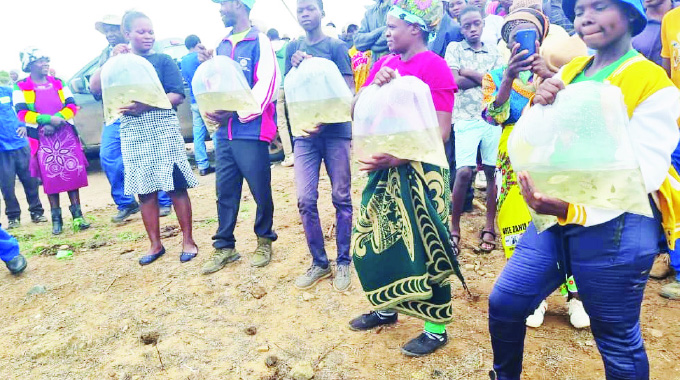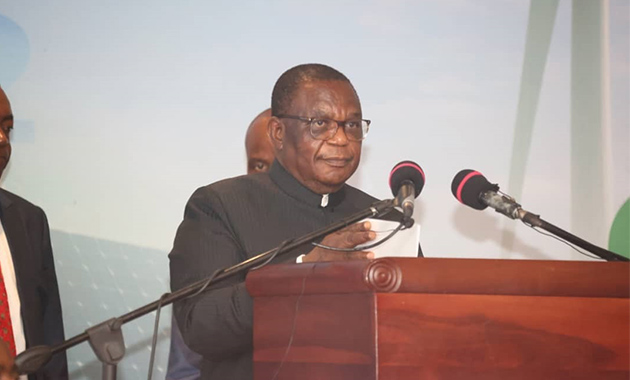Zim gold smuggled to Dubai
Oliver Kazunga, Senior Business Reporter
GOVERNMENT has expressed concern over the smuggling of the country’s gold to Dubai via South Africa, and is putting in place measures to curb the vice so as to ensure increased formal deliveries of the precious metal.
Finance and Economic Development Minister, Professor Mthuli Ncube, revealed this yesterday during a field day at the Bubi Gold Milling Centre where he was the guest of honour. The centre was commissioned by Vice President Dr Constantino Chiwenga last year as a pilot project run by the Zimbabwe Mining Development Corporation (ZMDC).
The center was set up to help increase gold output by the small-scale mining sector. Government has targeted to establish about 20 more gold milling centres across the country.
Speaking before the tour of the milling centre and Bubi Gold Mine, which is currently under development, Prof Ncube said gold contribution to the economy was being affected by smuggling.

Minister of Finance Professor Mthuli Ncube to curb Gold leakages
“The sector has potential to contribute much more if we can curb the leakages. Government is going ahead with implementing interventions to curb the smuggling of gold to Dubai through South Africa,” he said.
“One of the interventions is where we have Fidelity Printers paying a lucrative price for gold sales. We are aware that all smuggling takes place to Dubai through South Africa and we are losing a lot of gold and we are doing everything as Government to curb leakages.”
Gold alone generates US$1 billion annually…what is interesting is that the small-scale miners are now the major contributors to gold production accounting for over 60 percent and at times as much as 70 percent.”
Prof Ncube said Government has adjusted the pricing system and the gold retention threshold to improve miners’ ability and access of selling the mineral to Fidelity.
Towards the end of May, the Reserve Bank of Zimbabwe through Fidelity Printers and Refiners announced a new gold trading framework where large scale gold miners are now required to retain 70 percent in hard currency of their gold sale proceeds while 30 percent is being paid in local currency.
On the small-scale mining sector, FPR indicated that players are now being paid a flat rate of US$45 per gramme.
Before the new gold trading framework, gold miners were being paid 55 percent of their proceeds in foreign currency while 45 percent was paid in local currency.
Prof Ncube said the gold sub-sector was one of the precious minerals that world economies across the globe use to hedge against inflationary pressures hence investors should increase their participation in the sector.
Last October, President Mnangagwa launched a US$12 billion mining industry economy by 2023 with the gold sector expected to contribute a minimum of US$4 billion. Speaking at the same occasion, Mines and Mining Development Minister Winston Chitando said capacitating the mining community was critical if the country was to move towards attaining a US$12 billion mining economy by 2023.
He said their tour together with Prof Ncube was a fact-finding mission aimed at establishing how the small-scale miners across all regions of the country can be capacitated.
“We want to ensure a fast track implementation to capacitate you (small-scale miners). That’s the reason why we have our guest of honour here (Bubi Gold Milling Centre). We are on an assignment to ensure you are capacitated to produce at your full capacity,” he said.
The setting of the gold milling centre has seen small-scale miners in Bubi district taking their ore for processing and selling their gold to FPR under one roof. The gold milling centre project is being rolled out across all the mining regions to boost the miner’s capacity as well as curbing leakage of the yellow metal. This year Zimbabwe targets to achieve 40 tonnes of gold having missed the projection in 2019 owing to a number of challenges, among them power constraints. Total gold output for last year stood at 33,2 tonnes.
– @okazunga












Comments